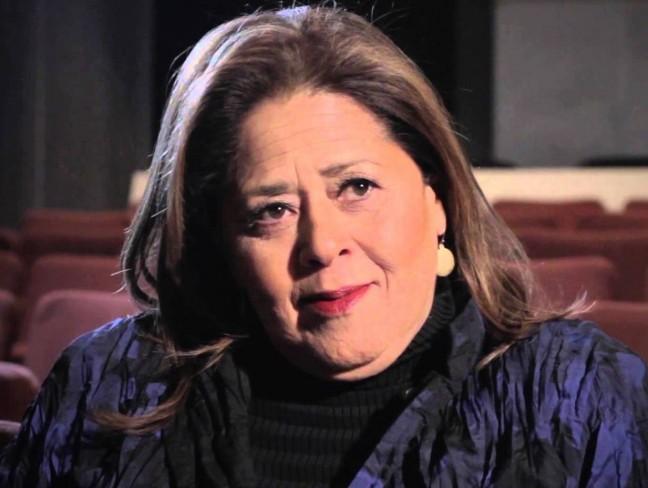Students and community members gathered in Memorial Union’s Shannon Hall Wednesday night to hear actress, playwright and professor Anna Deavere Smith make sense of the American identity.
Best known for her role in The West Wing as a hospital administrator, Smith is currently the artist in residence at the Center for American Progress. She has been recognized multiple times for her work in the humanities, including receiving the National Humanities Medal in 2012.
It all started with Shakespeare, Smith said in reference to her interest in finding the American identity through theatre. As a young actress in college, her fascination with the rhythm and imagery of the identity in dramatic literature pushed her to the investigate the American identity.
Smith integrated her experience with her grandfather who would repeat words to combat growing up in a world of segregation, and the “condemned words” of Shakespeare’s Queen Margaret in his play Richard III. Smith said she chased people like Shakespeare’s character in America who were “condemned to words” when their actions were not enough.
“I started out thinking I was going to do work in social change,” Smith said. “But when I started taking … acting classes [and] people were changing right in front of me, I thought, oh my goodness, I have to watch this change before … I could go out and change the world.”
It became an obsession — to find a real life person like Margaret in Shakespeare’s play who could take words that were condemned and make them so powerful, Smith said.
Smith traveled to places in America struck by catastrophes to interview people who were trying to make “upside down” situations “right side up.” She used the interviews to create powerful embodiments of the people pained by their realities.
“It was the same way you think of putting yourself in another person’s shoes, putting myself in another person’s words,” Smith said.
The first person’s word she embodied was a Korean woman after the L.A. riots in 1992. In an animated rendering of her original interview with the woman, Smith portrayed the feeling of loss the women had when she realized Koreans in America were not having their rights respected.
While black people fought to have their rights recognized, many Koreans were the owners of L.A. shops that were destroyed during the riots. Smith said in her portrayal the riots led to the recognition of black injustices, but “innocent Korean merchants … suffered.”
Before concluding Smith portrayed several other individuals whose words told their stories through her. Smith said she aims to show the empathetic soul of American identities whose words want and create change.


